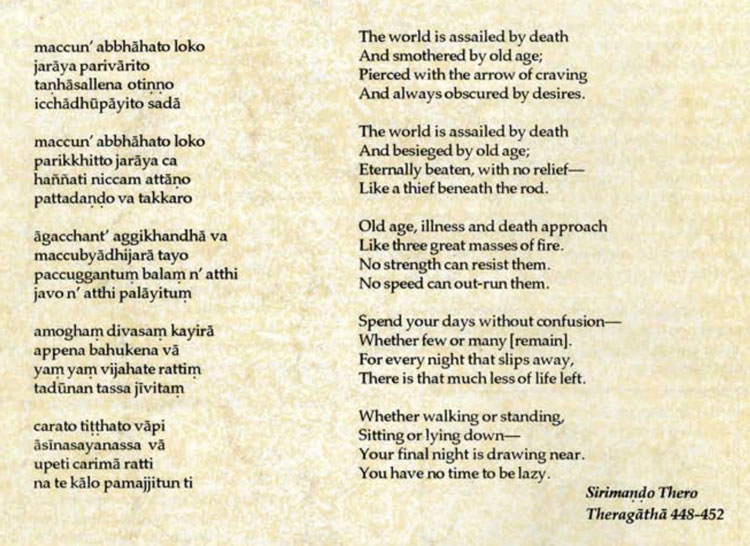 These powerful words echo through twenty-five centuries of humanity to reach our ears today. It makes one’s spine tingle to think how many voices—now long silent—have uttered these words in each of the one hundred generations that have come and gone since Sirimanda first composed them. How many have heeded their message? How many can hear it today?
These powerful words echo through twenty-five centuries of humanity to reach our ears today. It makes one’s spine tingle to think how many voices—now long silent—have uttered these words in each of the one hundred generations that have come and gone since Sirimanda first composed them. How many have heeded their message? How many can hear it today?
This is the kind of literature that leads some to view Buddhism as holding a pessimistic outlook on the world.
But in fact it is merely expressing in a forthright and dramatic manner some facts with which we are all quite familiar. Perhaps we would prefer to ignore the facts of aging and death; but the Buddha’s compassion is manifest in his not leaving the world to wallow in the shallow happiness that comes from ignoring our danger.
Above all these stanzas are a call to action, provoking us to wake up from the complacent slumber of our denial and urging us to dwell “without confusion.” This is a reference to mindfulness, the practice of insight meditation. For by nurturing awareness of what is actually going on in our experience—both what is pleasurable and what is painful—we sow the seeds of wisdom. And wisdom, according to the Buddhist tradition, can help us see through the desires and cravings that obscure what is ageless and deathless.